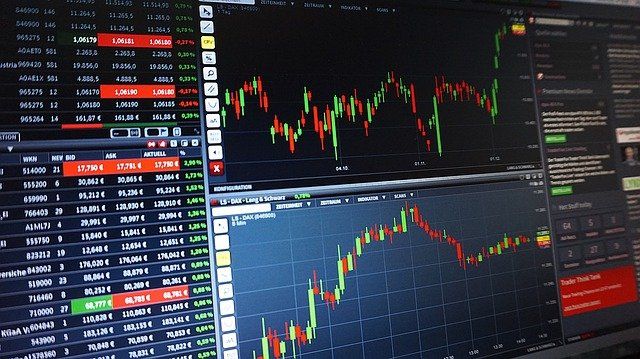There is more to the London Stock Exchange (LSE) than merely a stock exchange. This is the stage when economic stories come to an end, where billionaires' choices shape whole countries, and where the UK's economic situation is regularly assessed. At the heart of this is the FTSE 100 Index, a dynamic metric that mirrors the ebbs and flows of the UK's top 100 publicly traded companies. Let's examine this financial wonder in more detail as we lift the curtain to reveal its rich tapestry and importance on the world stage.
Sowing the Seeds: Origins of the FTSE 100 Index
Going back to 1984, the Financial Times and the LSE collaborated to launch the FTSE 100, which is why the abbreviation FTSE (Financial Times Stock Exchange) was created. It monitored the performance of the top 100 firms listed on the LSE in order to give a clear and succinct picture of the state of the UK economy.
The FTSE 100 has changed and evolved over time, reflecting changes in the domestic and international economy as well as booms and recessions, as well as advances in technology, all while retaining its position as the beating heart of the UK financial system.

The Cream of the Crop: Overview of the Companies Listed
Being a member of the exclusive FTSE 100 club is no easy feat. Firms need to fulfill strict standards, encompassing not just market capitalisation but also liquidity, adhering to certain UK domicile regulations, and being listed.
The beauty of the FTSE 100 lies in its diversity. It's a smorgasbord of sectors:
- Banking Behemoths: Such as Barclays and HSBC.
- Energy Titans: Like BP and Royal Dutch Shell.
- Pharmaceutical Pioneers: Think of AstraZeneca and GlaxoSmithKline.
- Retail Giants: Marks & Spencer and Next grace this list.
A Sprinkling of Star Players
While each company within the FTSE 100 has its unique tale, some have made headlines more than others:
- Unilever: A consumer goods colossus with products in over 190 countries.
- BHP: One of the world's most valuable and largest mining companies.
- Diageo: Quenching global thirsts with its array of beverages.
Not All That Glitters is Gold: Risks and Rewards
The FTSE 100, like any stock index, isn't immune to the rollercoaster of market volatility. From the financial crisis of 2008 to the uncertainties around Brexit, AI and Automation in eCommerce, and the unprecedented global pandemic, the FTSE has seen its share of highs and lows.
Factors that play puppeteer to its strings range from domestic policy changes, geopolitical tensions, global economic shifts, to even tweets from influential personalities. However, the FTSE 100's resilience is noteworthy. Despite the storms, it remains a beacon, showcasing the might of the UK's business landscape and its adaptability.

Reading Between the Lines: How Investors Use the FTSE 100
To the untrained eye, the FTSE 100 might just be a number that fluctuates. But to investors, it's a goldmine of insights.
The Index as a Barometer
It's no secret that the FTSE 100 serves as a gauge of the UK's economic health. A rising index indicates bullish market sentiments and vice versa.
Deciphering the Tea Leaves
Astute investors read the FTSE 100's trends, extrapolating potential global investment opportunities or shifts. For instance, a downtrend in the energy sector within the FTSE might indicate a broader global energy slump.
Investment Strategies
Whether one dives headfirst, going long on stocks that show promise, or tests the waters with cautious short trades, the FTSE 100 serves as a lighthouse guiding investment decisions.
Looking Beyond the Horizon: The Future of the FTSE 100
As we stand on the precipice of technological revolutions, geopolitical shifts, and a reimagined post-pandemic world, the FTSE 100 isn't just a passive observer. It's evolving, adapting, and gearing up for the future.
While crystal ball predictions are a tricky affair, a few trends seem poised to shape the FTSE's landscape:
- Technological Disruptions: With the rise of AI, biotech, and green energy solutions, new entrants might soon grace the FTSE list.
- Geopolitical Tensions: Trade wars, territorial disputes, and policy changes can cause ripples, if not waves.
- A More Inclusive Index: As the world clamors for more diversity and representation, the FTSE 100 might see a more varied list of companies in the coming years.
Keeping One's Ear to the Ground
The FTSE 100 is more than just an index; it's a chronicle of the UK's economic saga, a tale of its trials, triumphs, and aspirations. As we progress into an increasingly interconnected and dynamic world, the FTSE 100 will undoubtedly continue to adapt, reflecting the ever-evolving narrative of business and innovation. For those who keep their ears to the ground, the rhythms and reverberations of this index offer a symphony of insights and opportunities.


